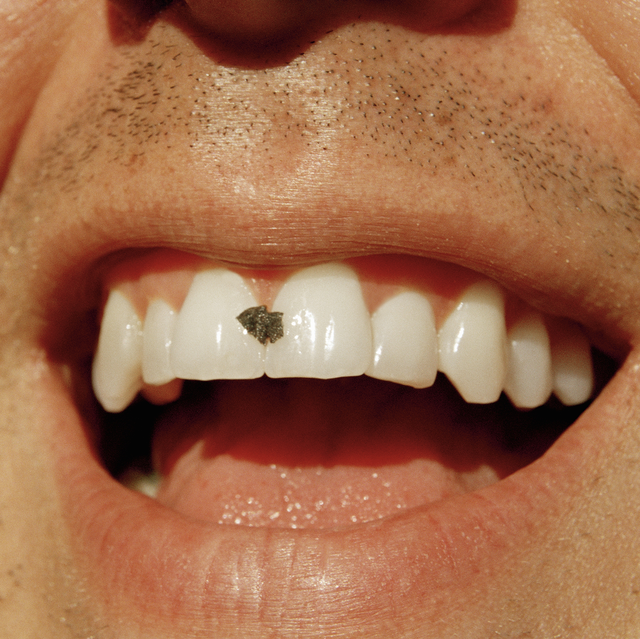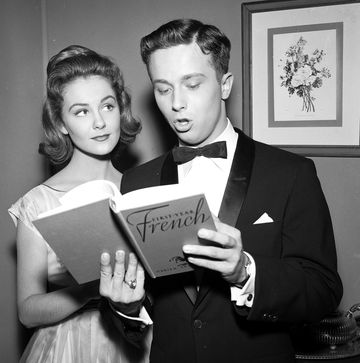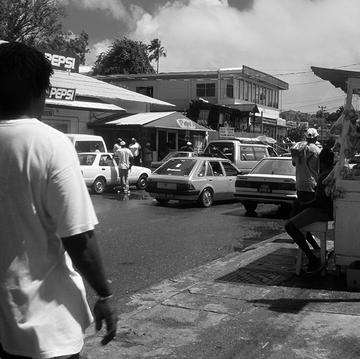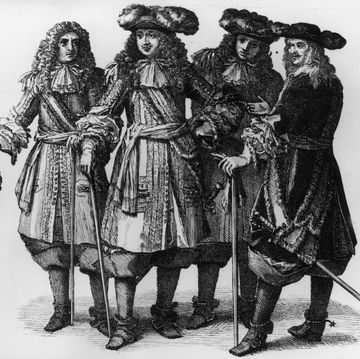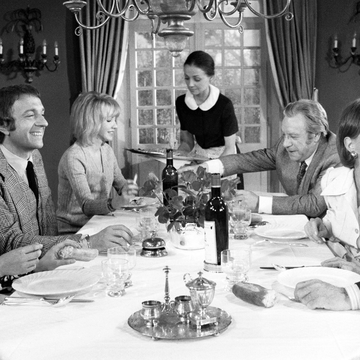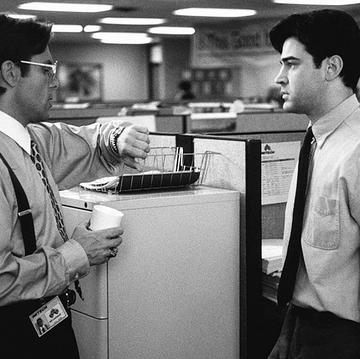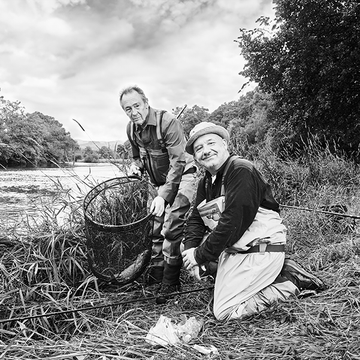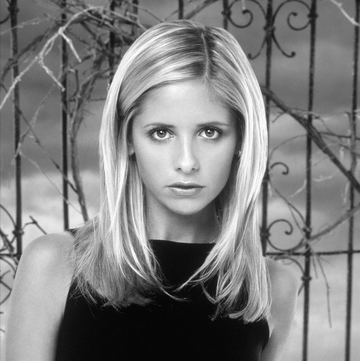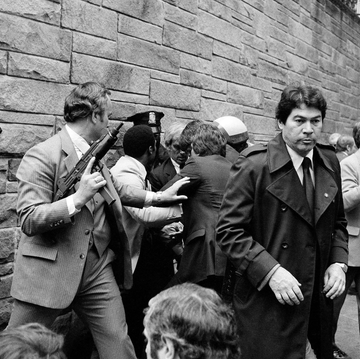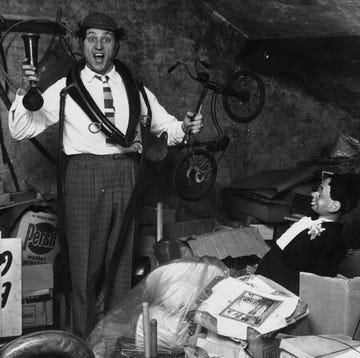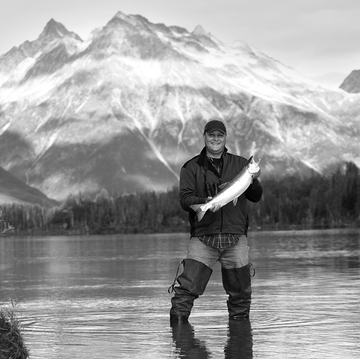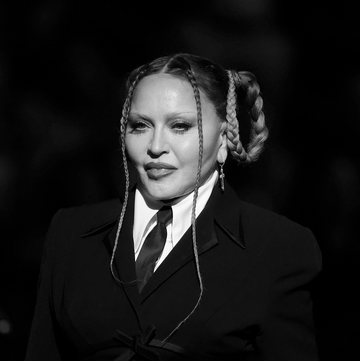I can remember the first time I became aware of the perils of teeth or nose stuff; the first time it struck me how casually — recklessly, even —a small misplaced crumb of goo could so completely murder a moment. I was in my penultimate year of studying for a fashion journalism degree at Saint Martin’s School of Art and had been out to a bar with some friends. Later in the evening, a few more boys joined the fray. One of them, Carl, was absurdly handsome and charming. He was quiet, but spoke eloquently when he did pipe up, and seemed reserved and mysterious compared to the rest of the boisterous gang.
At the end of the night, three of us, including him, were heading home in the same direction and shared a tube ride. We spoke, I flirted, Carl smiled. Even though I knew he was far too handsome to be interested in me, and probably wasn’t even gay, I still tried to be as engaging as possible.
A few days later, I bumped into our mutual friend and mentioned how much I’d liked his handsome companion; obviously I was hoping he would say that Carl had said much the same thing. He hadn’t.
To my surprise, however, Carl called a week later to invite me to his flat for dinner. It was a very grown-up request. As students we didn’t eat much, and certainly didn’t cook. Most of us lived in squats or bedsits or flat-shares. I wasn’t convinced it was a date until after supper, as we walked along the South Bank, with its twinkling lights reflected on the Thames below, he ignored the theatregoers hurrying home across the bridge and kissed me. We spent the night together and everything was, as I had hoped, perfect.
We arranged to meet again the following week to see a movie. The evening came and I hurried to The Screen on Baker Street, around the corner from the offices of the public relations company I was interning for, where Carl was leaning against the wall at the cinema’s entrance. This handsome, clever boy was here, looking like that, for stupid me. But then, well, disaster struck. As I leaned in to gently kiss his lips I caught sight of a small bogey hanging from one of his nostrils. I froze. My mind went into overdrive. Carl, I decided, would be devastated if he knew and so I couldn’t tell him. Nor did we know each other well enough for me to casually reach up and brush it away.
And so the bogey stayed there, lodged in his nostril, throughout the film. It was still there, taunting me, during supper afterwards. Poor Carl. I felt enormous sympathy and slight revulsion. He asked me if I wanted to go back with him. I couldn’t, I explained, I had an early start and needed to be at the other end of town. We kissed goodbye, briefly, and I rushed off. I felt terrible when I saw the puzzled look on his face; he knew something was wrong. As I travelled home on the bus, I tried to imagine his reaction when he got back to his flat and spotted the snot. I hoped, for his sake, it might have dropped out from the corner of his nostril on the way home.
I didn’t ring Carl, as I had promised to, that week; I still hadn’t come to terms with what had happened. He left a message on my answer machine — this was long before mobile phones — and I ignored it. And then one afternoon he turned up at the PR office, asking for me. The receptionist, with whom I had become pally, told him she would check to see if I was there.
“No, no, tell him I’m away,” I hissed down the phone. “In fact, tell him I’ve left London to work in Paris for a few weeks and can’t be contacted.” She did. Carl would have known that it was a whopping lie and he didn’t try calling again. I’ve never seen or heard from him since. I still wonder whether he’d seen his bogey that night, or just been confused as to why that bloke suddenly ghosted him for no apparent reason.
Carl’s mishap was a reflection of what I feared could happen to me; a lesson that however hard you try to make everything as perfect as possible there is always the chance, a very real chance, that the smallest bomb could blow that hard-won ideal into smithereens.
My obsession with something being stuck in my teeth, my dismay at Carl’s bogey, a desire to have perfect teeth, not too many wrinkles, a well-groomed eyebrow is, I’ve been told, a form of OCD. It means I used to have to check my reflection in a mirror dozens of times a day to ensure that nothing “terrible” had happened to my face. This wasn’t always easy. Working in big offices often meant a long walk to the bathroom to check the mirrors; the same with restaurants.
When eating out, unless it was with friends or colleagues I knew well, I would often avoid ordering green vegetables, salads, or anything with coriander, that might get stuck in my teeth despite loving the taste of them all. Sometimes, if I imagined something was wedged in between my front teeth and I couldn’t check whether it was true or not, I would talk for the rest of the meal through tight lips, cover my mouth when I laughed, or try and hurry the meal to an end. I even abbreviated teeth stuff to “TS” to use as a code with my partner for when we were out for dinner. If the conversation was flowing, and our fellow diners were distracted, I would whisper across the table “TS?” and pull an exaggerated smile so that they could clearly see my teeth.
Over the last few years, thanks to a good shrink, my addiction has subsided. And technology has made handling it a lot easier. Initially, I would rely on the camera on my iPhone to check for danger: press the reverse button and there is your selfie-ready reflection. This solution wasn’t entirely satisfactory, though, as the camera doesn’t allow you to magnify your image. I would therefore take a photograph of my face and then enlarge the picture to check it more thoroughly. But, be warned, there are potential pitfalls with this: if you don’t have your phone volume turned down, your lunch companion, or meeting room colleague, will be a little surprised when they hear the click sound of the phone’s camera when you are supposed to be only checking some vital facts on a saved document. They wonder, with some valid concern, why you are either taking selfies in the middle of an important discussion or, even more alarming, taking photographs of them.
Salvation eventually arrived in the form of an app called Vanity. It’s a mirror you can download that does allow you to magnify your reflection. This has enabled me, when the urge to check my face hits me at inopportune moments, to pretend I’m studying an important text message. The odd faces I pull (required to check my teeth and nose) when reading those “text messages” I can explain away as short-sightedness.
Although it’s been a complete pain in the, err, face over the years, I’m relieved my mirror addiction was diagnosed as a mild form of OCD rather than extreme vanity. Vanity usually implies a heavy dose of self-admiration, which I certainly don’t have. My relationship with mirrors has always been very one-way.
“Mirror, mirror on the wall, who’s the fairest of them all?” No reply. Awky.
Jeremy Langmead is a writer, editor and the author ofVain Glorious: A Shameless Guide for Men Who Want to Look Their Best, out now
